Grapefruit juice is a personal favorite of mine because of its fresh, unique flavor without being overly sweet like other juices can be. Its tart taste and sweet smell lead to a refreshing juice perfect for sipping on any time of day. Here are tips for storing grapefruit juice in the fridge or freezer and making this delicious juice last longer!
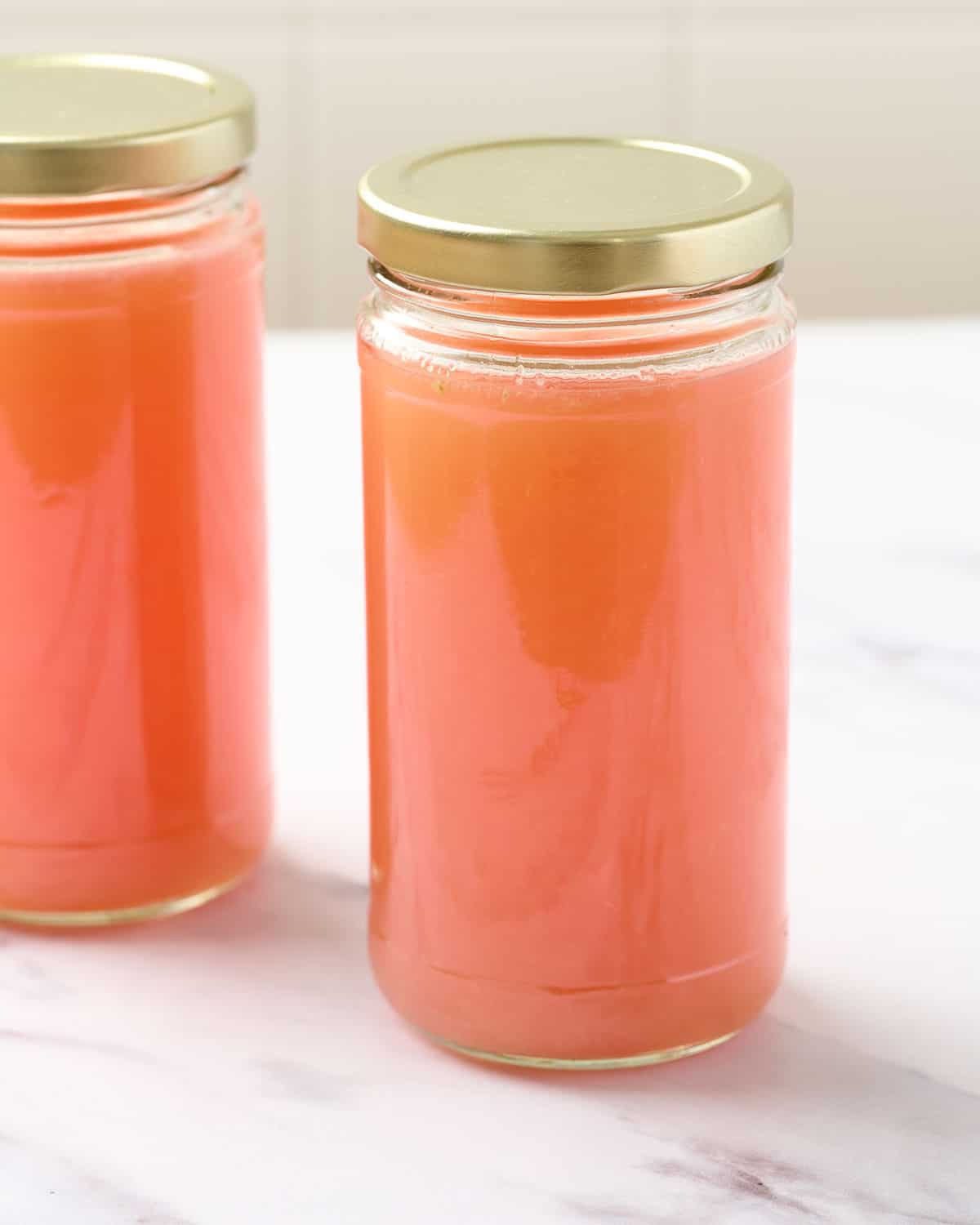
As we all know, there is no better way to consume fruit juice than making it yourself, so that’s why we are going to make our own fresh squeezed grapefruit juice!
Grapefruits are perfect for juicing because they’re big enough to easily squeeze with your hand, each fruit yields plenty of juice, and they are available year round at just about any local grocery store! Not to mention, grapefruits last 1-2 weeks at room temperature and 2-3 weeks in the fridge, so there is plenty of time to juice them after buying.
In this post, we are going to look at how to juice grapefruits, a variety of methods to properly store your grapefruit juice, how to tell if your grapefruit juice has gone bad, and how to extend the shelf life of your freshly-squeezed grapefruit juice!
How to Make Fresh Squeezed Grapefruit Juice
The most common and easiest way to make freshly squeezed grapefruit juice is to simply juice them by hand. Grapefruits are large and juicy enough that simply cutting your grapefruit into halves or quarters and squeezing is the easiest and quickest way to juice them.
Most citrus squeezers will be too small to use with a grapefruit, but the majority of citrus reamers will work. Just half your grapefruit, press the cut side down onto the sharp edge of the reamer with a little twist, and apply pressure so the juice comes out. Electric juicers also work well with grapefruits if you have one, but they are not necessary.
For more, check out my Fresh Squeezed Grapefruit Juice recipe!
Storing Grapefruit Juice: Refrigeration vs Room Temperature
Refrigeration: The FDA recommends that grapefruit juice, along with any other homemade juices and the majority of foods, be stored in the refrigerator at 40°F (4°C) or lower. The colder temperatures slows the growth of bacteria, prevent foodborne illnesses when consumed, and reduce the rate at which your juice will spoil in general.
With proper refrigeration, freshly-squeezed grapefruit juice will last 2-3 days before spoiling.
Room Temperature: Grapefruit juice will only last a couple of hours at room temperature without proper refrigeration. After about two hours, the juice will begin to sour, develop a strange odor, and become unsafe to consume due to bacteria buildup.
For more information about food storage and safety, visit the USDA website.
Guide to Freezing Grapefruit Juice
Freezing grapefruit juice is a great way to prolong the life of your juice. It can last up to six months when frozen and can be thawed safely in just hours or minutes, depending on how much time you have to thaw!
Freezing grapefruit juice tips: Use freezer-safe containers or ice cube trays to portion out smaller quantities for future use. Be sure to leave some room for expansion in the container to prevent breakage.
Grapefruit juice will last up to 6 months in the freezer.
Thawing frozen grapefruit juice: When ready to use frozen grapefruit juice, pull it out of the freezer and let it thaw. There are several ways to thaw your frozen juice, but I recommended either thawing in the refrigerator or in cold water.
- Thawing in the refrigerator: Smaller containers of grapefruit juice will need 4-6 hours to completely thaw in the refrigerator whereas larger containers may need upwards of 24 hours.
- Thawing in cold water: Place your container of juice inside a watertight plastic bag, then submerge your container into a bowl or pot of cold water. Change the water every 30 minutes or so to maintain a cold temperature, similar to how you would do so when thawing meat or vegetables in cold water. This method usually takes 1-3 hours for smaller containers and varies with larger containers.
- Thaw in the microwave: If you are in a rush, you can thaw your juice in the microwave, although I would not recommend this method. The microwave will affect the taste and texture of your juice, and you run the risk of overheating/cooking it as well. If you decide to microwave, do so on the lowest setting and monitor it frequently.
- Thawing at room temperature: This method is never recommended. After sitting at room temperature for a few hours, bacteria will begin to grow rapidly in the juice before it thaws, risking spoilage and illness when consumed.
General Storage Guidelines
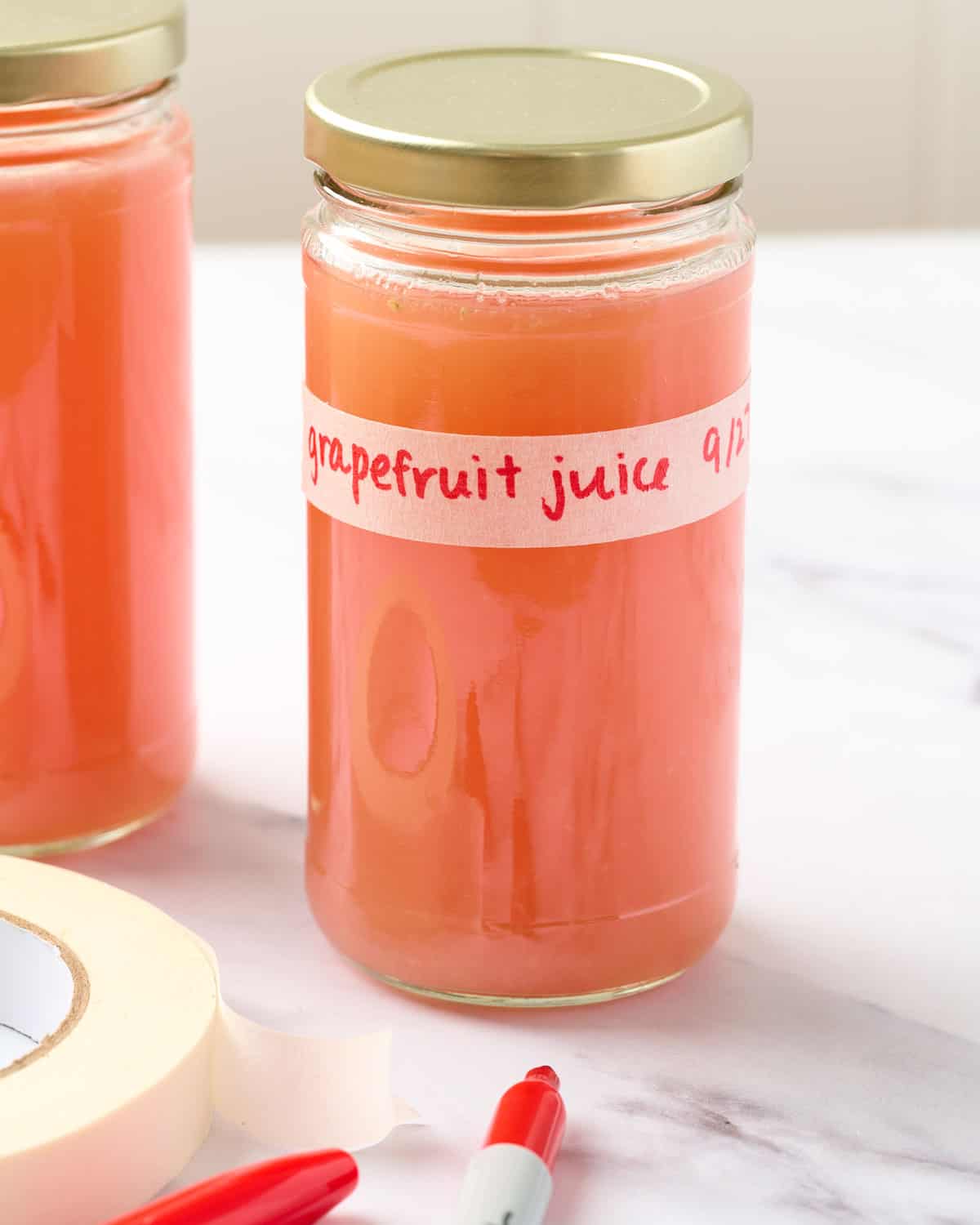
Refrigerate promptly: Freshly squeezed grapefruit juice should be refrigerated immediately after preparation at 40°F (4°C) or lower. The cold temperature slows down the growth of bacteria to prevent illness and helps preserve both the flavor and integrity of the juice.
Use an airtight container: Store the juice in an airtight container to minimize exposure to air, which can lead to oxidation and spoilage. Glass or plastic containers with tight-fitting lids work well.
Minimize light exposure: Keep the juice container away from direct sunlight and strong artificial light, as light can cause the degradation of certain compounds in the juice and affect its flavor.
Keep it sealed: Always make sure the container is tightly sealed after each use to prevent air from entering and maintain the freshness of the juice.
Avoid temperature fluctuations: Try to maintain a consistent temperature in your refrigerator. Avoid opening the fridge door frequently, as temperature fluctuations can affect the juice's shelf life (and run up your electric bill).
Label and date the container: It's a good practice to label the container with the date when the juice was prepared. This helps you keep track of freshness and ensures you use the juice within its recommended storage time frame.
Use smaller containers: If you have a large batch of grapefruit juice, consider dividing it into smaller containers. This reduces the frequency of opening and closing the main container and minimizing exposure to air, as well as preventing any leftover juice from spoiling if not consumed within a few days.
How do I know Grapefruit Juice has Gone Bad?
There are several ways to tell if your grapefruit juice has gone bad. In addition to the following indicators, it is still important to properly label and date your juice in the refrigerator or freezer so you know exactly how long it has been in your refrigerator.
Visual indicators: Easy clues that your grapefruit juice is no longer safe to consume include mold growth and an expanded container or bubbles resting on the juice that could signify fermentation or spoilage. Note - a cloudy grapefruit juice does not mean it has gone bad. Freshly-squeezed grapefruit juice is usually cloudier than store bought juice as the pulp and other solids are not filtered out.
Smell: Spoiled grapefruit juice will have a sour, unpleasant odor. The juice should smell fresh, sweet, and citrusy.
Taste: Grapefruit juice should have a tangy, sweet, and tart flavor. If the juice tastes overly bitter or sour, it is likely spoiled.
Can You Drink Grapefruit Juice After its Expiration Date?
Drinking grapefruit juice after it has expired is not recommended. Bacteria buildup is almost certain and you could get very sick from drinking or cooking with spoiled juice. According to the FDA, you could begin feeling ill after consuming dangerous food borne bacteria within minutes, or it could take weeks before you begin to experience symptoms.
As a reminder, grapefruit juice will last about two hours at room temperature, 2-3 days in the refrigerator, and up to 6 months in the freezer.
Why Does Freshly-Squeezed Grapefruit Juice Spoil Quicker than Store Bought Juice?
Juices at the store are often pumped full of sugar and preservatives to extend their shelf life such as Ascorbic Acid, Sodium Benzoate, Potassium Sorbate, and others. These preservatives allow for juice to be produced commercially, delivered to the store, sit on the shelves until they are purchased, and then last for a week or so in your refrigerator.
Although we are not adding any artificial preservatives to our juice, there are steps we can take to extend the life of our juice while maintaining the natural integrity of the fruit and juice itself!
Tips for Extending Grapefruit Juice Freshness
- Proper storage: Properly store your grapefruit juice in a sealed, airtight container to avoid oxidation, fermentation, and rapid spoilage.
- Vacuum seal: To further prevent oxidation and bacteria growth, you can vacuum seal your juice. This storage method will allow for your juice to last upwards of a week in the refrigerator, but remember that once you break the vacuum seal, the clock is ticking before your juice spoils and it should be consumed within 2-3 days.
- Add citric acid: Citric acid is already found naturally in citrus fruits and helps lower the pH of your juice, meaning the acid content rises to fight off more bacteria and extend the juice’s shelf life. Generally, you will want to use ¼ teaspoons of citric acid per 32 oz (1 liter) of juice. Dissolve the citric acid in warm water by stirring them together, then add the mixture to your grapefruit juice. Repeat this process if need be to balance the flavor, but don’t add too much or your grapefruit juice will become overly acidic. Citric acid will extend the shelf life of the grapefruit juice by a few days, depending on how much is added.
- Keep it clean: As with anything you make in the kitchen, be sure to regularly wash your hands and equipment, be sure to store your juice in a clean container, and be sure to wash your grapefruits before juicing.
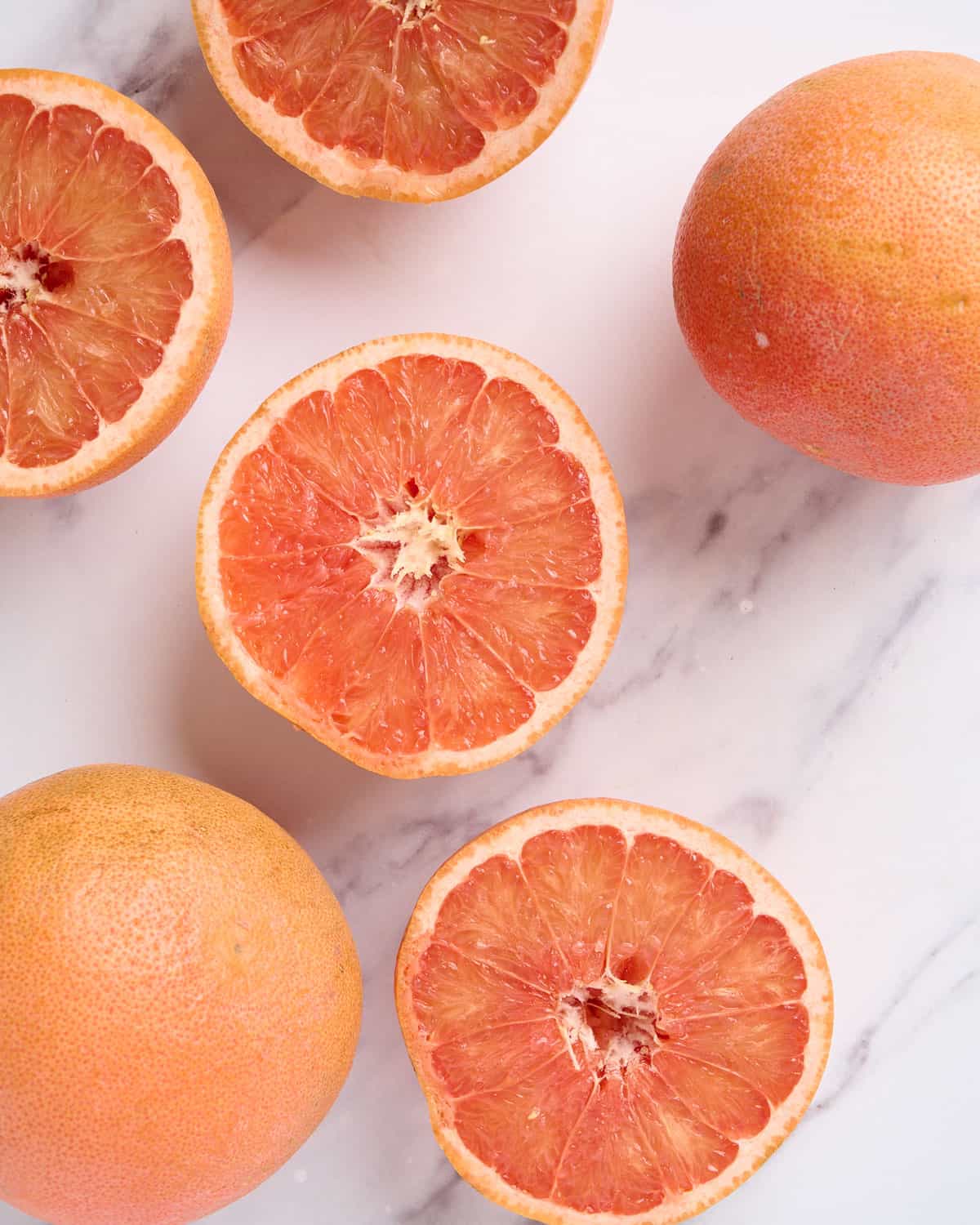
FAQs
Fresh squeezed grapefruit juice lasts 2-3 days in the refrigerator before spoiling.
Fresh squeezed grapefruit juice lasts about two hours at room temperature before bacteria that is unsafe to consume begins to form.
Fresh squeezed grapefruit juice is often cloudy due to pulp and other solids from the grapefruit when it is juiced and is not alone an indicator that the grapefruit juice has spoiled. Store bought juices often filter these solids out, making them clearer than freshly-squeezed juices. If you don’t want your grapefruit juice to appear cloudy, strain the juice after initially squeezing.
Due to artificial sweeteners and preservatives, store bought grapefruit juice will last longer than fresh squeezed juice.
No, grapefruit juice that is past its expiration date should be thrown out and not consumed due to health risks, even if cooking or baking with it.
Glass containers may preserve the taste and freshness of grapefruit juice better than plastic containers and are more resistant to odors, making washing your containers less of a chore later. However, both glass and plastic containers work as long as they form a proper seal for storage.
Recipes that Use Grapefruit Juice
Grapefruit juice is a great substitute for orange juice and pineapple juice. To learn more about substitutes for orange juice or substitutes for pineapple juice, check out those posts!


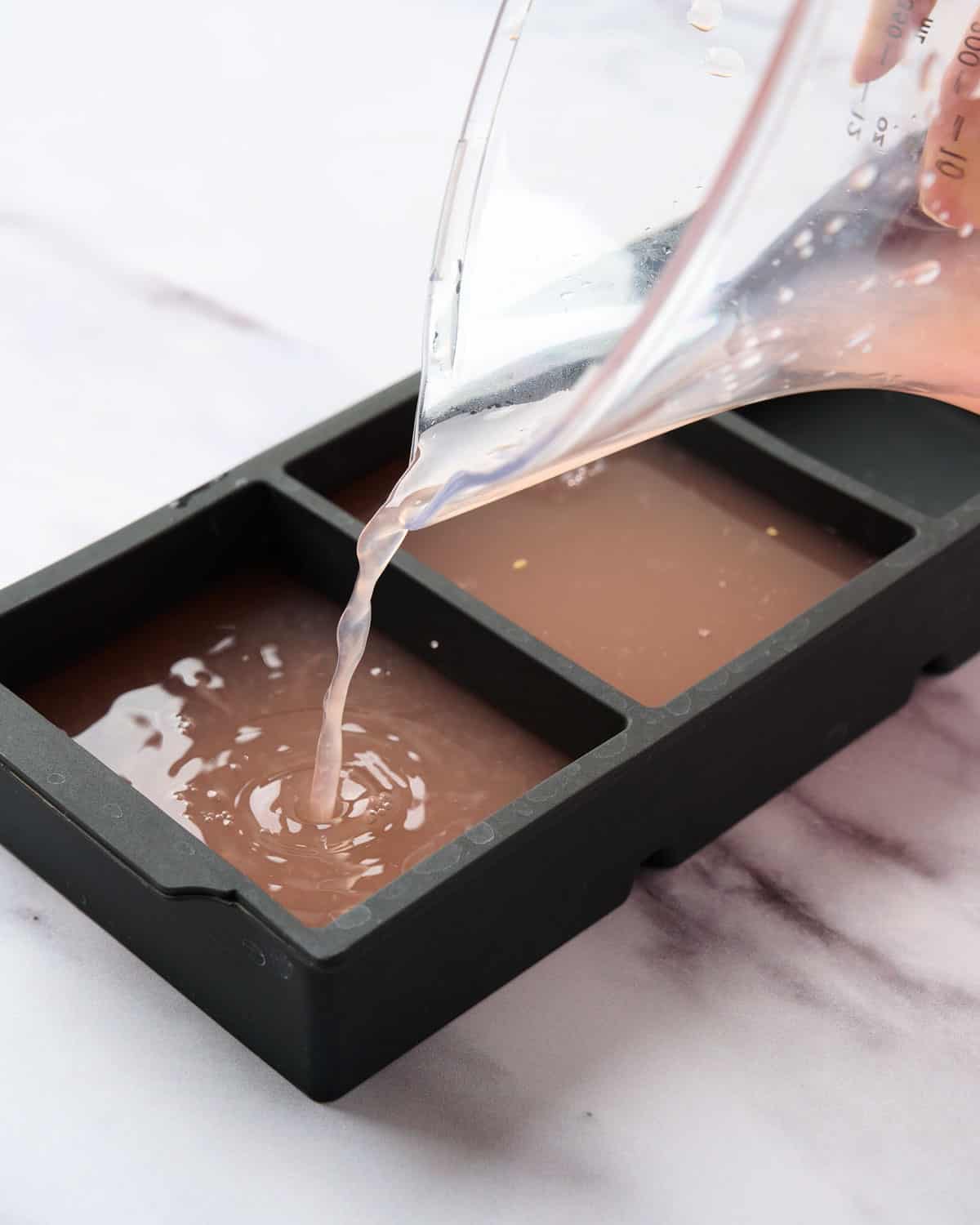
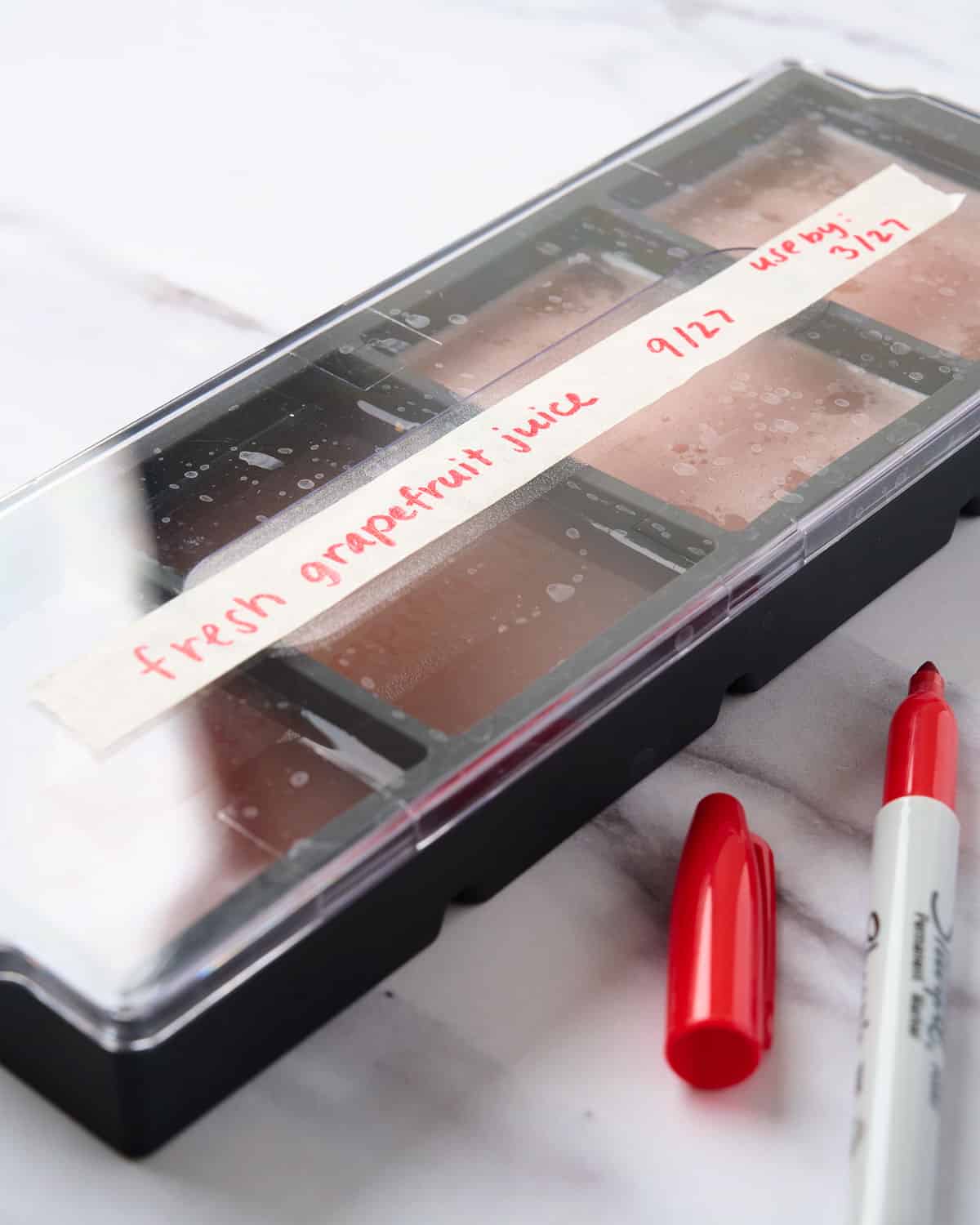

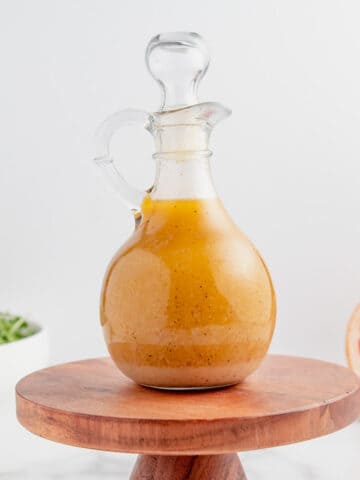







Comments
No Comments